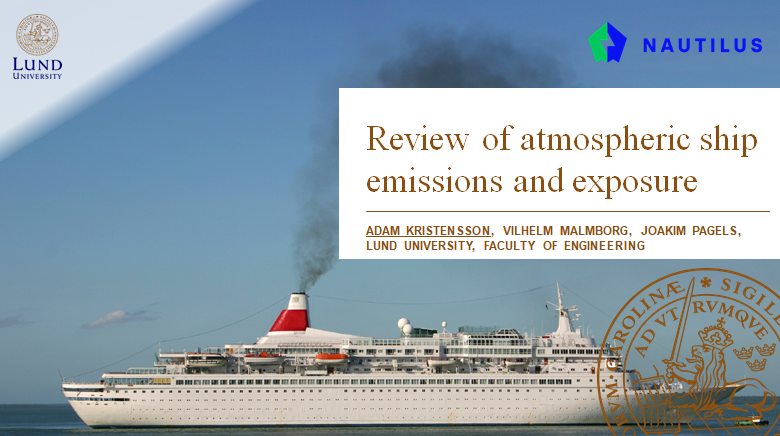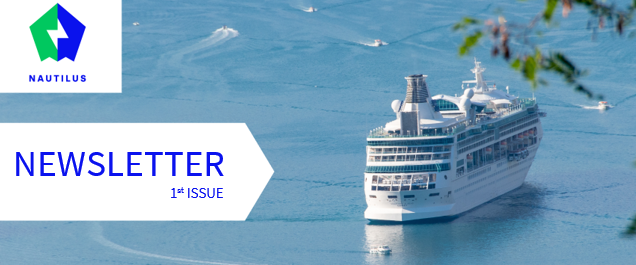Annual Aerosol Science Conference (AASC) provides a forum for aerosol scientists from both academia and industry to network and share knowledge. At the 2021 annual AASC event NAUTILUS representative Adam Kristensson from Lund University gave a speech about the review of atmospheric ship emissions and exposure.
The NAUTILUS project video was published on Youtube. Watch and stay in touch with us on Twitter and LinkedIn!
Welcome to the 1st newsletter of the NAUTILUS project. The first year of NAUTILUS project coincides with the introduction of the European Union’s ambitious strategy to make Europe a climate neutral continent by 2050 – The European Green Deal. This vision encompasses all aspects of our society, how the energy is produced and used at the heart of it. The ambition of the project NAUTILUS aligns with this vision. It aims to develop a highly efficient energy system for large passenger ships to curb their emissions of greenhouse gases and other pollutants, to comply with the targets of the International Maritime Organisation for 2030 and beyond. As local emission standards, both for CO₂ and pollutants in several regions in the EU such as Fjords are getting more stringent than the global targets, NAUTILUS also examines the possibility of fully sustainable energy solution for vessels.
The main fuel of the NAUTILUS project is LNG. However, since it is often seen as transitional fuel, we are also interested in the application of other fuels for Solid Oxid Fuel Cells (SOFC) in cruise ships. A shortlist of four other future fuels is established as alternatives of LNG, which will be used in the consortium for a technical-, economical-, emission- and life cycle analysis.



